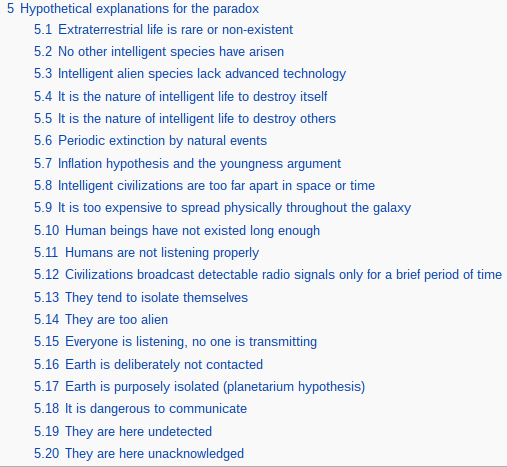A scorpion, not knowing how to swim, asked a frog to carry it across the river. “Do I look like a fool?” said the frog. “You’d sting me if I let you on my back!”
“Be logical,” said the scorpion. “If I stung you I’d certainly drown myself.”
“That’s true,” the frog acknowledged. “Climb aboard, then!” But no sooner than they were halfway across the river, the scorpion stung the frog, and they both began to thrash and drown. “Why on earth did you do that?” the frog said morosely. “Now we’re both going to die.”
“I can’t help it,” said the scorpion. “It’s my nature.”
___
…But no sooner than they were halfway across the river, the frog felt a subtle motion on its back, and in a panic dived deep beneath the rushing waters, leaving the scorpion to drown.
“It was going to sting me anyway,” muttered the frog, emerging on the other side of the river. “It was inevitable. You all knew it. Everyone knows what those scorpions are like. It was self-defense.”
___
…But no sooner had they cast off from the bank, the frog felt
the tip of a stinger pressed lightly against the back of its neck. “What do you think you’re doing?” said the frog.
“Just a precaution,” said the scorpion. “I cannot sting you without drowning. And now, you cannot drown me without being stung. Fair’s fair, isn’t it?”
They swam in silence to the other end of the river, where the scorpion climbed off, leaving the frog fuming.
“After the kindness I showed you!” said the frog. “And you threatened to kill me in return?”
“Kindness?” said the scorpion. “To only invite me on your back after you knew I was defenseless, unable to use my tail without killing myself? My dear frog, I only treated you as I was treated. Your kindness was as poisoned as a scorpion’s sting.”
___
…“Just a precaution,” said the scorpion. “I cannot sting you without
drowning. And now, you cannot drown me without being stung. Fair’s fair,
isn’t it?”
“You have a point,” the frog acknowledged.
“But once we get to dry land, couldn’t you sting me then without
repercussion?”
“All I want is to cross the river safely,” said the scorpion. “Once I’m on the other side I would gladly let you be.”
“But I would have to trust you on that,” said the frog. “While you’re pressing a stinger to my neck. By ferrying you to land I’d be be giving up the one deterrent I hold over you.”
“But by the same logic, I can’t possibly withdraw my stinger while we’re still over water,” the scorpion protested.
The frog paused in the middle of the river, treading water. “So, I suppose we’re at an impasse.”
The river rushed around them. The scorpion’s stinger twitched against the frog’s unbroken skin. “I suppose so,” the scorpion said.
___
A scorpion, not knowing how to swim, asked a frog to carry it across the
river. “Absolutely not!” said the frog, and dived beneath the waters, and so none of them learned anything.
___
A scorpion, being unable to swim, asked a turtle (as in the original Persian version of the fable) to carry it across the river. The turtle readily agreed, and allowed the scorpion aboard its shell. Halfway across, the scorpion gave in to its nature and stung, but failed to penetrate the turtle’s thick shell. The turtle, swimming placidly, failed to notice.
They reached the other side of the river, and parted ways as friends.
___
…Halfway across, the scorpion gave in to its nature and stung,
but failed to penetrate the turtle’s thick shell.
The turtle, hearing the tap of the scorpion’s sting, was offended at the scorpion’s ungratefulness. Thankfully, having been granted the powers to both defend itself and to punish evil, the turtle sank beneath the waters and drowned the scorpion out of principle.
___
A scorpion, not knowing how to swim, asked a frog to carry it
across the river. “Do I look like a fool?” sneered the frog. “You’d
sting me if I let you on my back.”
The scorpion pleaded
earnestly. “Do you think so little of me? Please, I must cross the
river. What would I gain from stinging you? I would only end up drowning
myself!”
“That’s true,” the frog acknowledged. “Even a
scorpion knows to look out for its own skin. Climb aboard, then!”
But as
they forged through the rushing waters, the scorpion grew worried. This frog thinks me a ruthless killer, it thought. Would it not be justified in throwing me off now and ridding the world of me? Why else would it agree to this?
Every jostle made the scorpion more and more anxious, until the frog surged forward with a particularly large splash, and in panic the
scorpion lashed out with its stinger.
“I knew it,” snarled the frog, as they both thrashed and drowned. “A scorpion cannot change its nature.”
___
A scorpion, not knowing how to swim, asked a frog to carry it across the river.
The frog agreed, but no sooner than they were halfway across the scorpion stung the frog, and they both began to thrash and drown.
“I’ve only myself to blame,” sighed the frog, as they both sank beneath the
waters. “You, you’re a scorpion, I couldn’t have expected anything better. But I knew better, and yet I went against my judgement! And now I’ve doomed us both!”
“You couldn’t help it,” said the scorpion mildly. “It’s your nature.”
___
…“Why on earth did you do that?” the frog said morosely. “Now we’re both going to die.”
“Alas, I was of two natures,” said the scorpion. “One said to gratefully ride your back across the river, and the other said to sting you where you stood. And so both fought, and neither won.” It smiled wistfully. “Ah, it would be nice to be just one thing, wouldn’t it? Unadulterated in nature.
Without the capacity for conflict or regret.”
___
“By the way,” said the frog, as they swam, “I’ve been meaning to ask: What’s on the other side of the river?”
“It’s the journey,” said the scorpion. “Not the destination.”
___
…“What’s on the other side of anything?” said the scorpion. “A new beginning.”
___
…”Another scorpion to mate with,” said the scorpion. “And more prey to kill, and more living bodies to poison, and a forthcoming lineage of cruelties that you will be culpable in.”
___
…”Nothing we will live to see, I fear,” said the scorpion. “Already the currents are growing stronger, and the river seems like it shall swallow us both. We surge forward, and the shoreline recedes. But does that mean our striving was in vain?”
___
“I love you,” said the scorpion.
The frog glanced upward. “Do you?”
“Absolutely.
Can you imagine the fear of drowning? Of course not. You’re a frog. Might as well be scared of
breathing air.
And yet here I am, clinging to your back, as the waters rage around us. Isn’t that love? Isn’t that trust? Isn’t that necessity? I could not kill you without killing myself. Are we not inseparable in this?”
The frog swam on, the both of them silent.
___
“I’m so tired,” murmured the frog eventually. “How much further to the other side? I don’t know how long we’ve been swimming. I’ve been treading water. And it’s getting so very dark.”
“Shh,” the scorpion said. “Don’t be afraid.”
The frog’s legs kicked out weakly. “How long has it been? We’re lost. We’re lost! We’re doomed to be cast about the waters forever. There is no land. There’s nothing on the other side, don’t you see!”
“Shh, shh,” said the scorpion. “My venom is a hallucinogenic. Beneath its surface, the river is endlessly deep, its currents carrying many things.”
“You – You’ve killed us both,” said the frog, and began to laugh deliriously. “Is this – is this what it’s like to drown?”
“We’ve killed each other,” said the scorpion soothingly. “My venom in my glands now pulsing through your veins, the waters of your birthing pool suffusing my lungs. We are engulfing each other now, drowning in each other. I am breathless. Do you feel it? Do you feel my sting pierced through your heart?”
“What a foolish thing to do,” murmured the frog. “No logic. No logic to it at all.”
“We couldn’t help it,” whispered the scorpion. “It’s our natures. Why else does anything in the world happen? Because we were made for this from birth, darling, every moment inexplicable and inevitable. What a crazy thing it is to fall in love, and yet – It’s all our fault! We are both blameless. We’re together now, darling. It couldn’t have happened any other way.”
___
“It’s funny,” said the frog. “I can’t say that I trust you, really. Or that I even think very much of you and that nasty little stinger of yours to begin with. But I’m doing this for you regardless. It’s strange, isn’t it? It’s strange. Why would I do this? I want to help you, want to go out of my way to help you. I let you climb right onto my back! Now, whyever would I go and do a foolish thing like that?”
___
A scorpion, not knowing how to swim, asked a frog to carry it across
the river. “Do I look like a fool?” said the frog. “You’d sting me if I
let you on my back!”
“Be logical,” said the scorpion. “If I stung you I’d certainly drown myself.”
“That’s
true,” the frog acknowledged. “Come aboard, then!” But no sooner had
the scorpion mounted the frog’s back than it began to sting, repeatedly,
while still safely on the river’s bank.
The frog groaned, thrashing weakly as the venom coursed through its veins, beginning to liquefy its flesh. “Ah,” it muttered. “For some reason I never considered this possibility.”
“Because you were never scared of me,” the scorpion whispered in its ear. “You were never scared of dying. In a past life you wore a shell and sat in judgement. And then you were reborn: soft-skinned, swift, unburdened, as new and vulnerable as a child, moving anew through a world of children. How could anyone ever be cruel, you thought, seeing the precariousness of it all?” The scorpion bowed its head and drank. “How could anyone kill you without killing themselves?”







